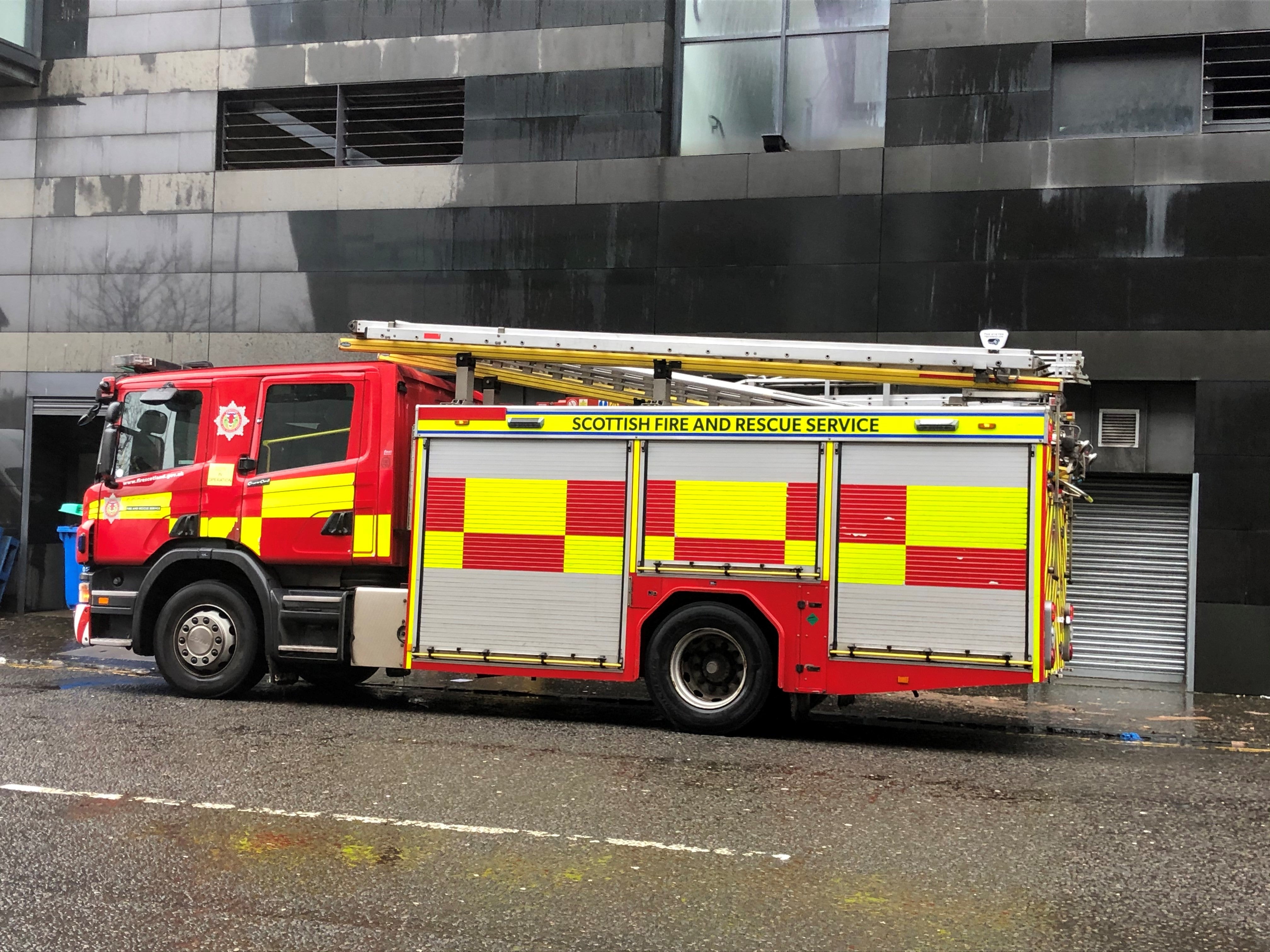Firefighters will no longer travel to all automatic alarms from next April
The Scottish Fire and Rescue Service said it makes around 57,000 unnecessary blue light journeys a year to investigate false alarms.

Your support helps us to tell the story
From reproductive rights to climate change to Big Tech, The Independent is on the ground when the story is developing. Whether it's investigating the financials of Elon Musk's pro-Trump PAC or producing our latest documentary, 'The A Word', which shines a light on the American women fighting for reproductive rights, we know how important it is to parse out the facts from the messaging.
At such a critical moment in US history, we need reporters on the ground. Your donation allows us to keep sending journalists to speak to both sides of the story.
The Independent is trusted by Americans across the entire political spectrum. And unlike many other quality news outlets, we choose not to lock Americans out of our reporting and analysis with paywalls. We believe quality journalism should be available to everyone, paid for by those who can afford it.
Your support makes all the difference.Firefighters will no longer travel to investigate all automatic alarms after a public consultation backed proposals to reduce unnecessary callouts.
The Scottish Fire and Rescue Service (SFRS) said that crews of up to nine have routinely been mobilised in two fire appliances to an average of 28,479 false alarms each year, equating to around 57,000 unnecessary blue light journeys annually.
From April next year the fire service will establish if Automatic Fire Alarms (AFAs) in workplaces have been triggered by an actual fire before sending any appliance, after the majority of respondents to the public consultation backed that option.
Hospitals, residential care homes and “sleeping risk” premises will remain exempt and appliances will continue to be mobilised automatically to any fire alarm activations within these facilities.
False alarms account for almost one third of fire and rescue activity across Scotland
SFRS anticipates that the change will reduce attendance rates by up to 57% and will free up 37,524 hours each year for firefighters to do training and carry out community safety work.
Stuart Stevens, SFRS Assistant Chief Officer, said: “False alarms account for almost one third of fire and rescue activity across Scotland They place a drain on front line services, increase risk to road users and cause interruption to the business sector and communities.
“The advantages of call challenging workplaces to reduce these callouts are clear.
“Making this change means we can carry out more training, community safety and fire prevention activity, as well as improving road safety and reducing our carbon impact.
“These unnecessary blue light journeys bring risks to our crews, other road users and pedestrians as well as impacting the environment with an estimated 575 tonnes of carbon emissions produced – the equivalent of heating 230 homes a year.
“Businesses will also experience less disruption as they no longer need to wait for us to attend to give the all clear after a false alarm.”
The change will come into effect in April 2023 and will bring Scotland into line with most other UK Fire and Rescue Services.
An SFRS board paper said that based on an estimated 57% reduction in unwanted fire alarm signals and subsequent blue light journeys, the service could save up to an estimated £703,896 per year.
Between 2015/16 and 2019/20, SFRS responded to an annual average of 28,479 unwanted fire alarm signals (UFAS) caused by false alarms from AFAs in the workplace, with levels rising over the past few years.
The SFRS board paper said it is difficult to determine the underlying causes of rising levels of UFAS, but it is likely to be a range of factors including the number of AFA systems increasing in new builds and advances in system technology.
The introduction of the SFRS’s national approach to UFAS following reform, which sought to consolidate the policies of eight legacy fire and rescue services, is also suggested as a factor.
Mr Stevens said: “The legal responsibility for dealing with an AFA alert lies with the duty holder of a property and most UK fire and rescue services now seek confirmation of a fire before attending.
“Now the SFRS is making this change too.”